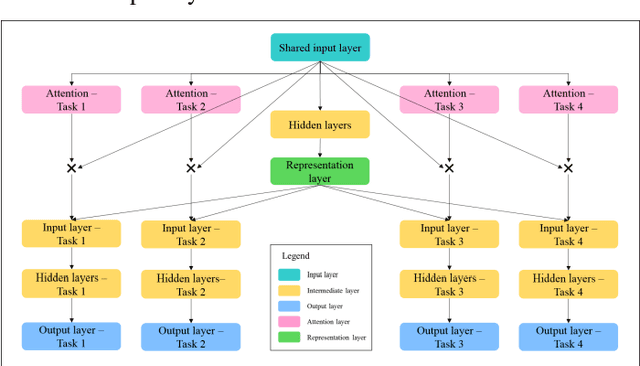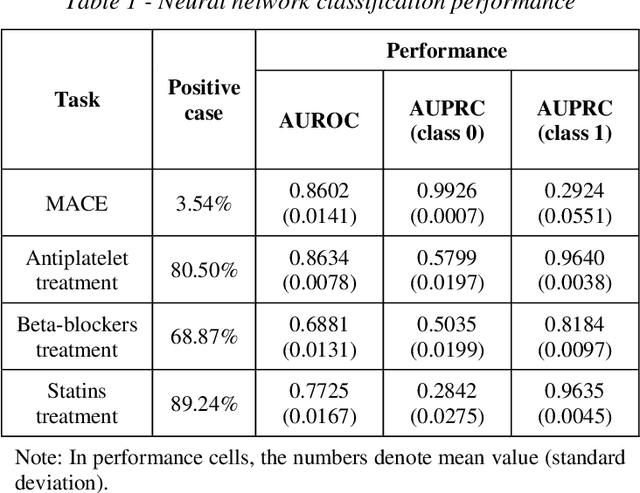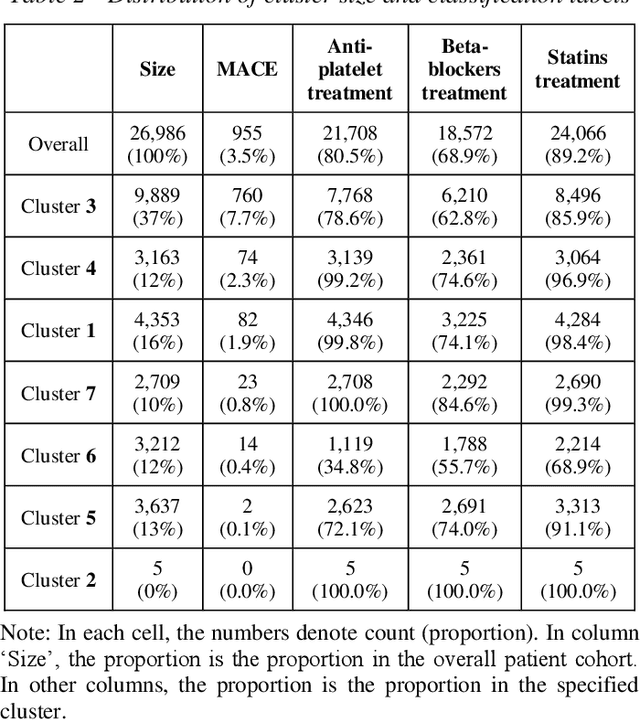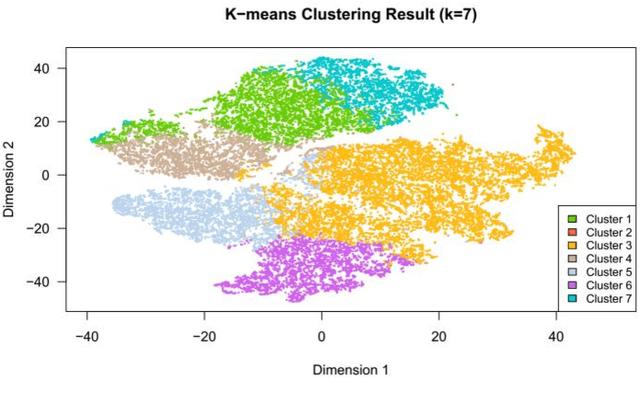Outcome-Driven Clustering of Acute Coronary Syndrome Patients using Multi-Task Neural Network with Attention
Paper and Code
Mar 27, 2019



Cluster analysis aims at separating patients into phenotypically heterogenous groups and defining therapeutically homogeneous patient subclasses. It is an important approach in data-driven disease classification and subtyping. Acute coronary syndrome (ACS) is a syndrome due to sudden decrease of coronary artery blood flow, where disease classification would help to inform therapeutic strategies and provide prognostic insights. Here we conducted outcome-driven cluster analysis of ACS patients, which jointly considers treatment and patient outcome as indicators for patient state. Multi-task neural network with attention was used as a modeling framework, including learning of the patient state, cluster analysis, and feature importance profiling. Seven patient clusters were discovered. The clusters have different characteristics, as well as different risk profiles to the outcome of in-hospital major adverse cardiac events. The results demonstrate cluster analysis using outcome-driven multi-task neural network as promising for patient classification and subtyping.
 Add to Chrome
Add to Chrome Add to Firefox
Add to Firefox Add to Edge
Add to Edge